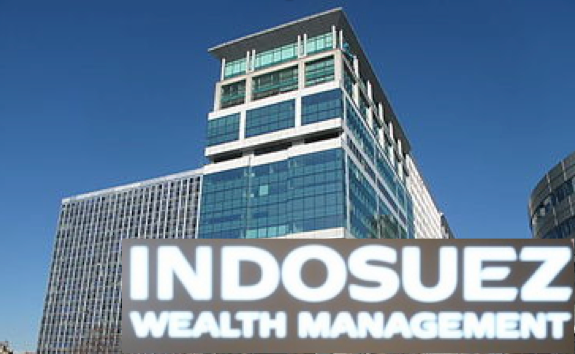Pershing: We Look Forward to Helping our Clients Succeed in Latin America
| By Fórmate a Fondo | 0 Comentarios
Although Pershing has no physical presence in Latin America, John Ward, Managing Director Global Client Relationship with the financial services company owned by BNY Mellon, emphatically expresses the company’s commitment to a region which he considers offers opportunities, due to the demographic and regulatory changes that are taking place.
Mr. Ward is referring to Pershing’s second largest market, both by the number of clients and clients’ assets. In the region of the “Americas”, in which each country is managed independently, they currently have 100 clients from the U.S. and other countries (including Canada), whose needs are managed from the United States. In order to do this, Pershing has teams which, besides English, speak Spanish or Portuguese and understand the culture, idiosyncrasy, needs, and environment of each of the markets in which the company operates. They have clients in Chile, Panama, and Mexico as well as clients in the US – in Florida, New York, California – who serve the Latin American region.
Amongst the greatest challenges in the area, Ward mentioned the economic situation, the regulatory aspects, and the evolution of commodity prices, along with the situation in Brazil or the political changes that may occur in each of the countries, or which, in some, are already occurring.
The executive believes that the regulatory framework is maturing and that expertise in the financial market is growing. Talent is increasingly developing. We’re witnessing a growing number of Latin American firms establishing their presence in the United States to retain talent within the organization, explains Ward, referring to financial companies from Brazil, Colombia or Mexico, setting up in Miami or Houston.
On the other hand, regulatory developments favor a gradual, but very slow, increase in offer to certain investors from specific countries, attracting European fund companies, also aware of population growth, the emerging middle class, and the increasing number of HNWI. In short, Ward defines Latin America as “an opportunity for growth.”
The number of asset management companies looking into Latin America as a region with which to improve their indicators has grown in 2015. Changes occurring, such as pension funds in Chile, Colombia, and Peru, are causing management companies to want to expand their product offering and bring in the sales force he explains. Very few firms have their own sales teams in situ, and those with dedicated teams in the United States are more numerous. “Maybe it’s not so much about new companies, although there are some, but about existing companies refocusing their strategy for increased growth in Latin America,” he points out.
The depth and speed of growth depends on the industry itself, (which is looking for new talent, both in Wealth Advisors and in Private Banking), regulation, and on how committed to the region are the companies operating in it. While it is true that some large companies are leaving the area due to the risks involved in sustaining the business, according to Ward, there will be a consolidation of service providers, but there will also be newcomers entering to service the niches left by others. With regard to how this future development will affect their business, Pershing’s managing director of global client relationships declares that, “The diversification of our client base allows us to adapt to different market environments.”
The executive, who has been working 23 years for the company, thinks that the profitability of relationships can be very different and that there are very diverse models. “We make no distinctions between our clients or in how the service is provided, depending on their size”.
The products sold in Latin America do not differ greatly from those distributed in the United States. Its institutional client base consists of regulated institutions like brokerage subsidiaries of banks, or broker-dealers, and so typically do not serve Family Offices or Multi Family Offices, which being an emerging activity is not regulated. As regards the profile of the final clients which their client institutions serve, it is individuals ranging from the highest segment of affluent investors to the UHNW niche, and some institutional, such as pension funds or insurance.
As regards other issues with a strong presence in industry forums, such as the AML regulations or CRS, Ward points out that his company is extremely compliant with them, and recognizes that the regulation will be a critical component for their business and for any other. “We pay attention to the client’s risk profile and base our relationship on collaboration.”
Ward defines the future of the Wealth Management industry as having a strong component of digital advice complimenting the human interaction, rather than solely through robo-advisors. “Embracing digital components is critical to the advisory service and an opportunity for joint growth,” not only aimed at millennials, which can be digital natives, but at all investors. The expert is certain that technology will have a major impact on the industry and that it will assist advisors in their marketing and sales tasks to create a digital brand and, for example, to design more collaborative processes with the client. Although competition will lower prices for services and that the industry is reviewing its models to maintain its profitability, he does not believe it will significantly affect the highest wealth or UHNW sector, and doesn’t see technology as a possible substitute for personal advice, in most scenarios.
Speaking of the role technology will play, we continue our interview by analyzing another of the concerns shared by the Wealth Management industry: the aging of its clients and its professionals. “There are now more individuals than ever saving for retirement, and there are 30 trillion dollars in the United States that will pass on to the next generation over the next 30 years,” he says, adding that “there will not be enough advisors to manage that. The help of technology as a tool will be required. Digital advice will help advisors to meet that need. “
Ultimately, after reviewing the current situation and prospects for Pershing and for the industry, especially in Latin America, Ward summarizes: “We see our clients facing a growth opportunity and we are personally invested in helping them succeed, so our vision is optimistic”. He concludes: “We have a great opportunity to grow our business in Latin America and look forward to building our client relationships in the coming years.”


